Understanding the Landscape of Mental Health Recovery Coaching
Recovery coaching has emerged as a promising complement to traditional mental health services, especially in supporting adults dealing with depression. This article explores how peer and psychosocial recovery coaches enhance treatment outcomes, improve engagement, and contribute to sustained recovery for individuals with depression and related mental health conditions. Through evidence from diverse healthcare settings and population studies, we examine the impact of recovery coaching within comprehensive mental health services.
Defining Comprehensive Mental Health Services and Their Role in Treating Depression and Anxiety

What are comprehensive mental health services?
Comprehensive mental health services provide a holistic approach to care, addressing not just the mental symptoms but also the physical and social factors influencing well-being. These services encompass a range of interventions, including thorough assessment, psychotherapy, medication management, crisis support, and long-term recovery assistance.
Such services prioritize coordination among multiple healthcare providers—mental health specialists, primary care clinicians, and community organizations—to craft treatment plans tailored to each individual's needs. This integration ensures that treatment considers social environments, individual circumstances, and broader determinants like housing and employment.
Community-based care and early prevention efforts form key components, aiming to promote mental health and reduce stigma. Initiatives often align with international frameworks such as the World Health Organization’s Mental Health Action Plan, focusing on improving quality of life by treating the whole person within their communities.
What treatments are available for anxiety and depression?
A variety of treatment options exist for anxiety and depression, often used in combination for optimal outcomes. Psychotherapy is a cornerstone, with cognitive-behavioral therapy (CBT), exposure therapy, and interpersonal therapy being evidence-based approaches effective in reducing symptoms.
Pharmacological treatments include selective serotonin reuptake inhibitors (SSRIs), serotonin-norepinephrine reuptake inhibitors (SNRIs), and occasionally benzodiazepines or beta-blockers, with medication regimens carefully personalized.
Beyond clinical therapies, lifestyle adjustments play an important supporting role. Stress management techniques, regular physical activity, and participation in support groups can improve treatment response and overall mental wellness.
Early intervention is vital, and working with trained mental health professionals ensures access to comprehensive care covering assessment, treatment, and support services. Incorporating peer support, such as peer recovery coaching—shown to improve engagement and outcomes—can further enhance recovery journeys.
Together, these diverse components form comprehensive mental health services that address anxiety and depression through a coordinated, patient-centered, and multifaceted approach.
Introduction to Recovery Coaching and Peer Recovery Coaches (PRCs)
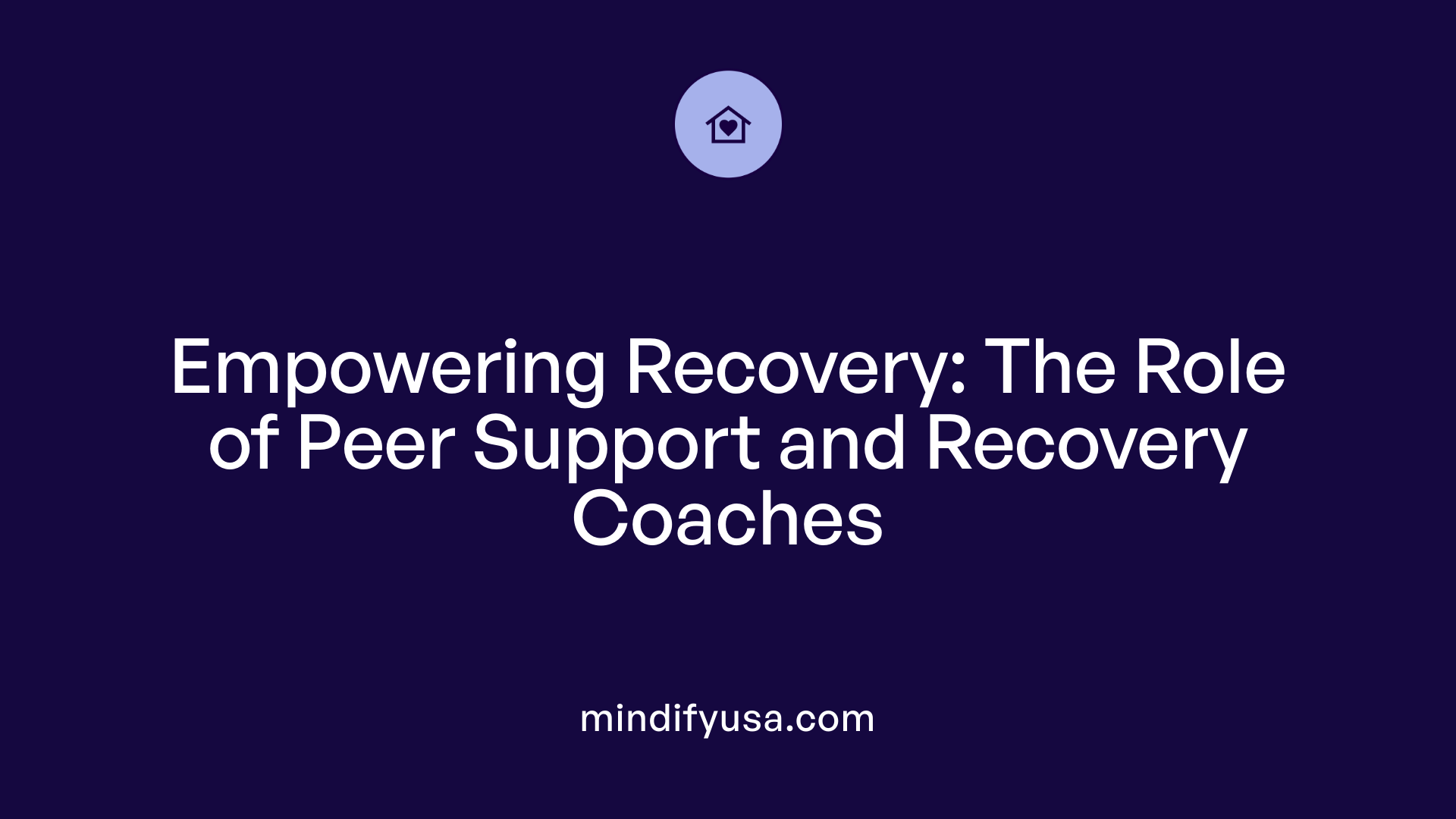
What are Peer Recovery Coaches and Their Role?
Peer Recovery Coaches (PRCs) are individuals with lived experience in overcoming substance use disorders who provide dedicated support to patients on their recovery journeys. They assist by helping patients define personal recovery goals, engage actively in addiction treatment, and navigate the often complex healthcare system. This peer-based approach fosters a unique connection that can overcome traditional barriers to care and enhances the likelihood of positive treatment outcomes.
Scope of Support Provided by PRCs
PRCs offer comprehensive support that extends beyond clinical treatment. Their role includes empowering patients to maintain motivation, facilitating access to resources, and offering encouragement through challenges. They also aid in addressing broader social determinants such as housing and employment stability, which are crucial factors in sustaining long-term recovery and wellbeing.
Settings Where PRCs Operate
The implementation of PRCs spans multiple settings within integrated healthcare environments. In large health systems like Mass General Brigham, PRCs have been embedded across primary care, behavioral health clinics, emergency departments, inpatient units, and community clinics. This wide adoption ensures patients encounter peer support seamlessly throughout their care continuum, enhancing engagement opportunities at critical points of contact.
Outcomes Achieved Through Peer Recovery Coaching in Integrated Healthcare Systems
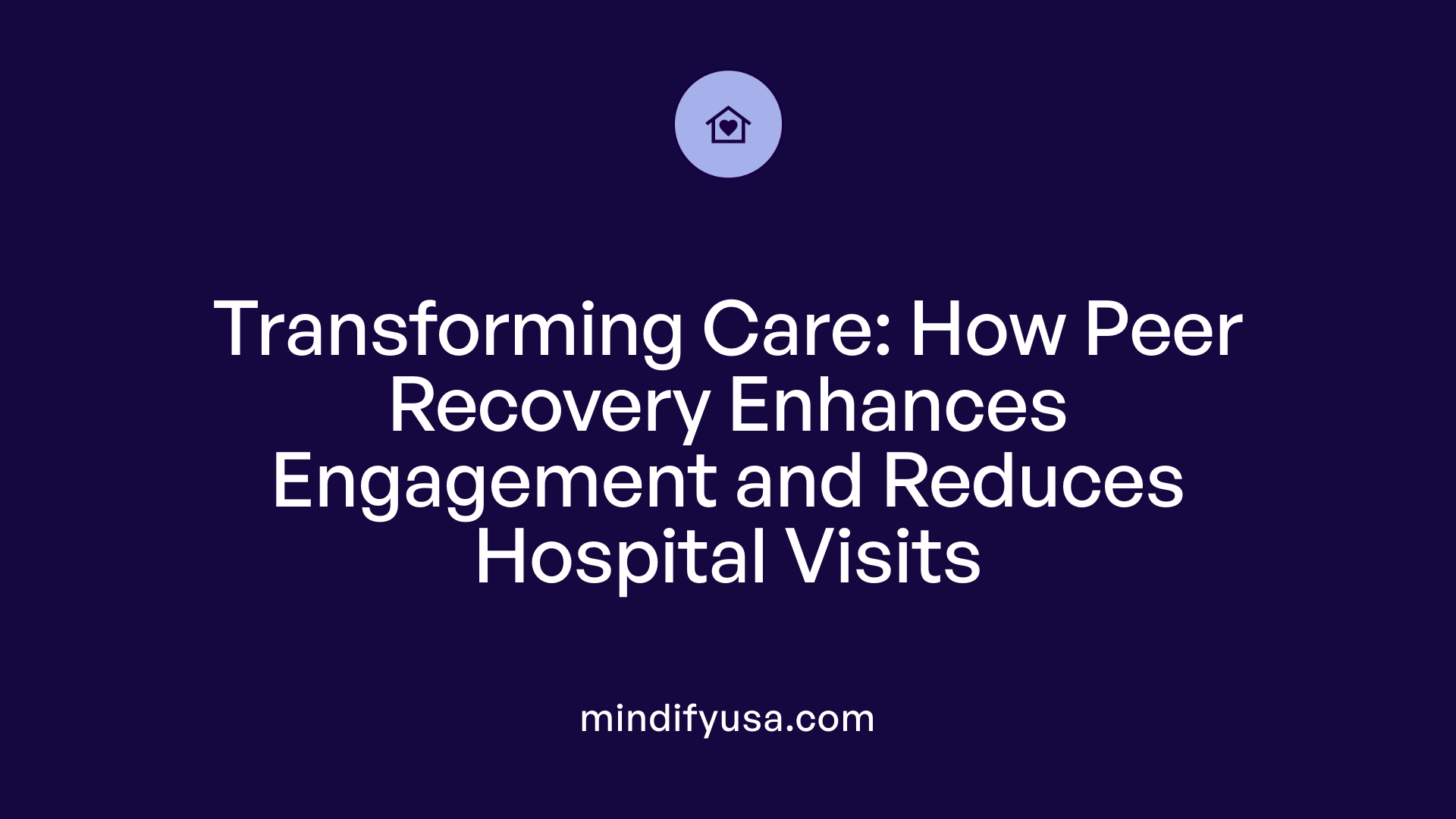
What were the engagement rates for patients with peer recovery coaching?
Patients referred to peer recovery coach (PRC) programs within the integrated healthcare system of Mass General Brigham showed high engagement levels, with enrollment rates reaching 83.4%. This elevated engagement is crucial as it fosters continuous participation in recovery efforts and treatment adherence.
How did peer recovery coaching affect hospitalizations and emergency visits?
Engagement with PRCs was linked to substantial reductions in acute care utilization. Specifically, hospitalizations decreased by 44%, while emergency department visits fell by 9% in the six months following initial contact with a coach. Simultaneously, outpatient encounters increased by 66%, indicating a shift toward proactive, community-based care rather than crisis interventions.
What benefits were observed for patients on medication-assisted treatment?
For patients receiving medication-assisted treatment, such as buprenorphine, PRC involvement significantly boosted positive outcomes. These patients had greater odds of achieving opioid abstinence and maintaining ongoing treatment compared to those without PRC support. This suggests that peer recovery coaching effectively complements pharmacotherapy by enhancing treatment retention and recovery success.
Overall, embedding PRCs across various settings in a broad healthcare network demonstrates a viable approach to improving substance use disorder outcomes through better patient engagement, reduced acute service use, and strengthened medication-assisted recovery strategies.
Psychosocial Recovery Coaching and Its Impact on Adults with Depression
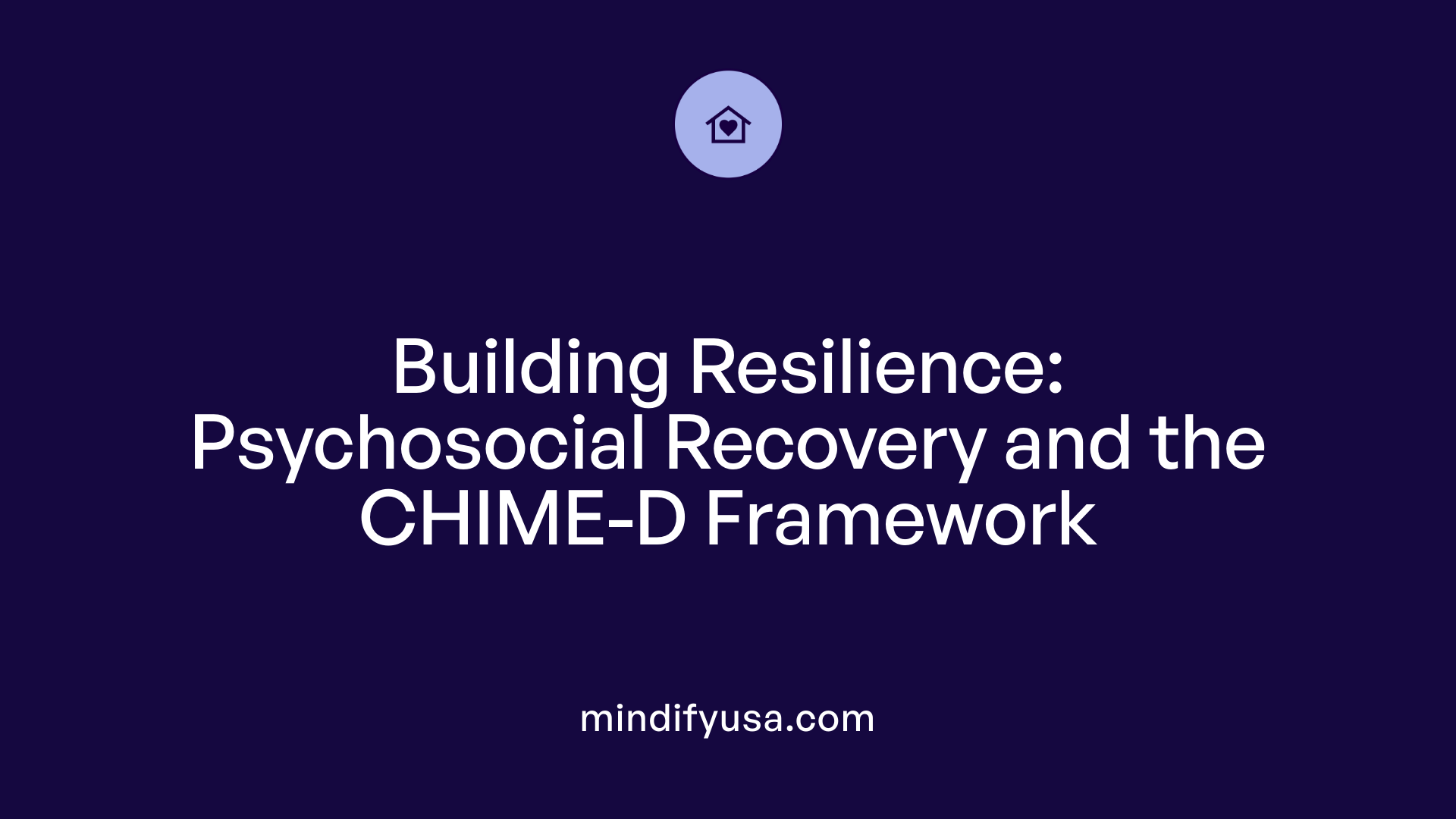
What is Psychosocial Recovery Coaching under NDIS?
Psychosocial recovery coaching was introduced in July 2020 as part of the National Disability Insurance Scheme (NDIS) in Australia. It is designed to provide recovery-oriented support to people with psychosocial disabilities, particularly those managing mental health challenges. The coaching is personalized, focusing on capacity building, helping clients improve their independence, social participation, and ability to manage mental health and trauma.
How Does Psychosocial Recovery Coaching Align with the CHIME-D Framework?
The experiences and outcomes reported by participants closely align with the CHIME-D recovery framework, which stands for Connectedness, Hope and optimism, Identity, Meaning in life, Empowerment, and coping with difficulties and trauma. This framework highlights core elements that promote holistic mental health recovery. Clients reported benefits such as increased feelings of connection and being valued, enhanced hope and optimism about the future, strengthened identity, meaningful life engagement, and empowered coping strategies.
What Improvements Have Been Noted in Social Support and Empowerment?
A majority of participants reported significant positive outcomes from psychosocial recovery coaching:
- Improved social support: 70% of clients experienced enhanced social connections and felt more supported.
- Feeling valued and respected: 79% felt that they were treated with respect and their worth was recognized.
- Increased hope and optimism: Clients gained confidence and motivation to pursue life goals.
- Empowerment: The coaching helped clients develop the skills to manage their mental health symptoms, trauma, and daily challenges more effectively.
This personalized approach equips adults with depression to build meaningful recovery journeys, improve their social networks, and regain control over their lives within a flexible, client-centered framework.
Challenges and Solutions in Implementing Recovery Coaching Programs
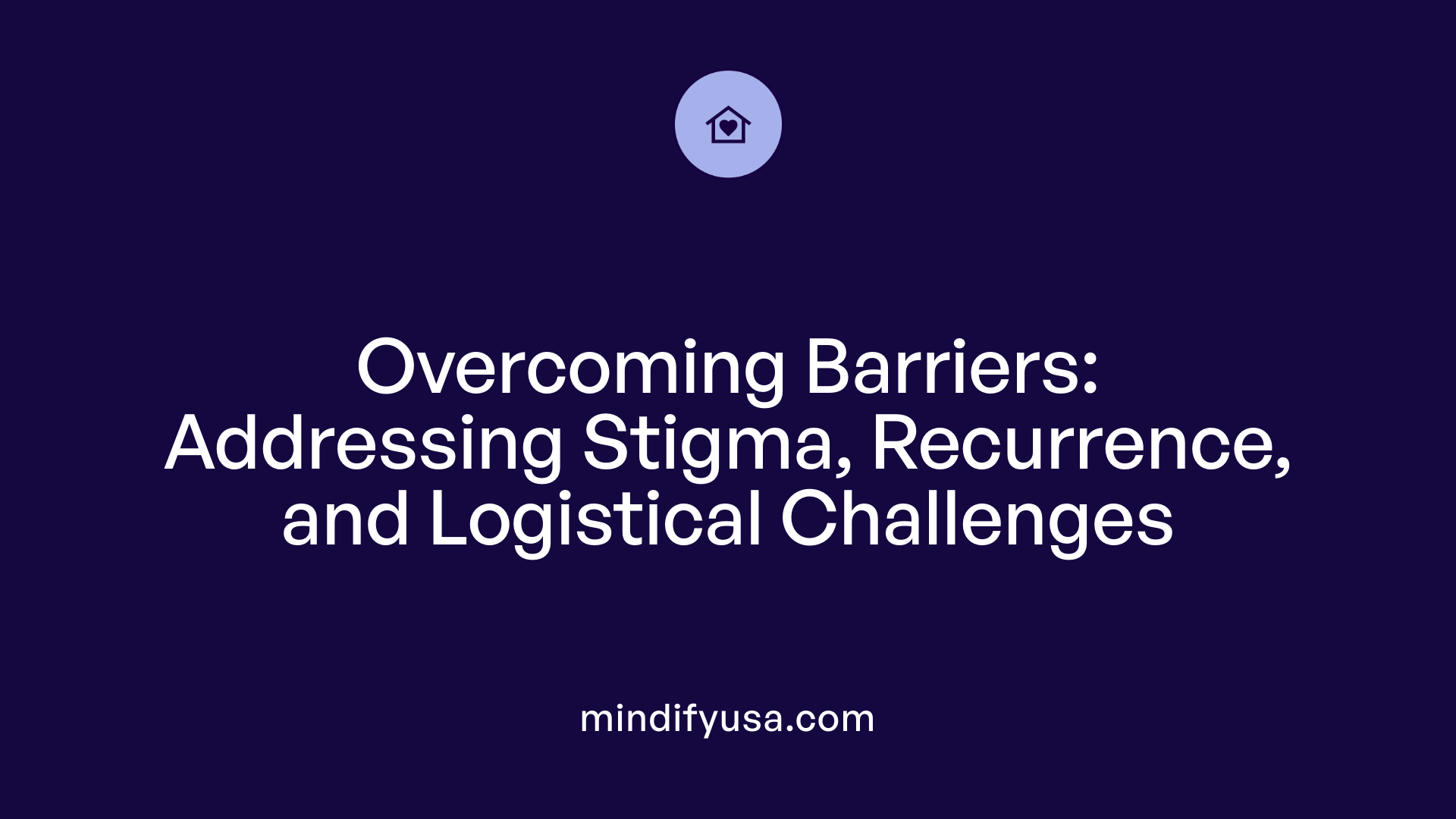
What Barriers Arise from the Criminalized Nature of Addiction?
Implementing peer recovery coaching programs encounters hurdles linked to the criminalization of addiction. This stigma complicates hiring practices, as individuals with substance use histories may face legal and social barriers to employment in healthcare settings. Organizations address these issues by developing dedicated policies that support inclusive hiring, ensuring that lived experience remains a valued asset rather than a source of discrimination.
How Does Substance Use Recurrence Affect PRCs' Work?
Relapses among peer recovery coaches can impact service delivery and program stability. Recognizing this challenge, programs have instituted strong supervision and support structures to help PRCs manage their recovery while fulfilling professional responsibilities. These supports include counseling, peer supervision, and contingency plans that maintain client support without disruption.
What Administrative and Logistical Challenges Are Common?
Balancing the flexible, peer-driven nature of recovery coaching with administrative requirements presents ongoing difficulties. Tasks like scheduling, documentation, and data collection can conflict with the community-oriented model. Successful programs mitigate these issues through streamlined workflows and leadership that champions adaptability, allowing PRCs to focus on personalized coaching while meeting organizational accountability standards.
Recovery Coaching Outcomes in Socioeconomically Disadvantaged Populations

Peer recovery coaching in low-income areas
The Peer Recovery Expansion Project (PREP) implemented peer recovery coaching to support individuals with substance use disorders in economically disadvantaged neighborhoods of Houston, Texas. Over three years, 155 peer recovery coaches worked alongside 180 clients from low-income areas, providing tailored recovery support.
Improvements in housing and employment
Clients participating in the peer recovery coaching program experienced notable improvements in social determinants of health. At six-month follow-up, there was a 22% increase in clients maintaining stable housing. Employment outcomes also improved substantially, with a 25% rise in the number of clients employed or enrolled in a training program, demonstrating the program’s effectiveness in enhancing economic stability.
Reduction in psychiatric symptoms including depression
Beyond social improvements, peer recovery coaching contributed to mental health benefits. Participants reported decreased psychiatric symptoms such as depression and anxiety six months after engaging in coaching. These reductions highlight the holistic impact of peer coaching on both psychosocial and clinical dimensions of recovery in vulnerable populations.
Engagement Factors and Treatment Retention Among Adults with Depression
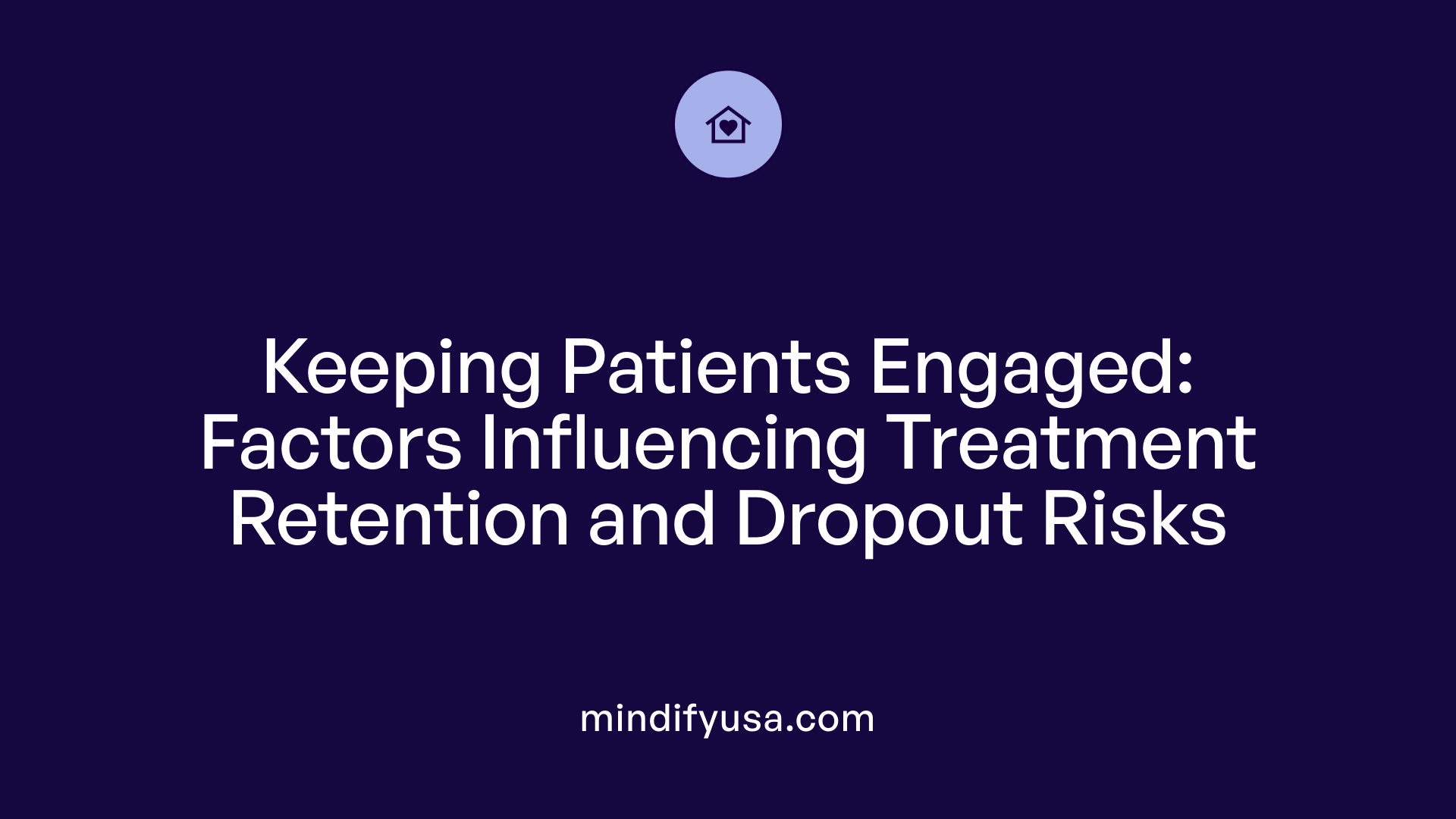
How does depression severity relate to treatment dropout?
Patients presenting with higher baseline depression severity, as indicated by PHQ-9 scores, tend to have a reduced risk of dropping out of behavioral health treatment. This suggests that individuals experiencing more intense depressive symptoms may be more motivated or feel a greater need to remain engaged in their treatment programs.
What is the connection between recovery status and dropout risk?
Interestingly, patients with higher baseline Recovery Assessment Scale (RAS) scores, reflecting better perceived recovery status at admission, show an increased likelihood of treatment dropout. This may imply that individuals who consider themselves better recovered might feel less urgency to continue treatment, leading to earlier departure from care.
How do suicidality and help-seeking behavior influence retention?
Greater suicidality at baseline is linked to decreased dropout risk, possibly due to heightened engagement, concern, or perceived necessity to continue receiving care. Conversely, willingness to ask for help is associated with an increased risk of dropout, highlighting a complex relationship where help-seeking may not always correspond to long-term treatment adherence.
These findings are especially significant among adolescents, patients with general mental health issues, and those receiving outpatient care. They offer valuable insights for designing tailored mental health services that promote sustained engagement, particularly for adults managing depression.
Future Directions: Enhancing Recovery Coaching to Support Adults with Depression
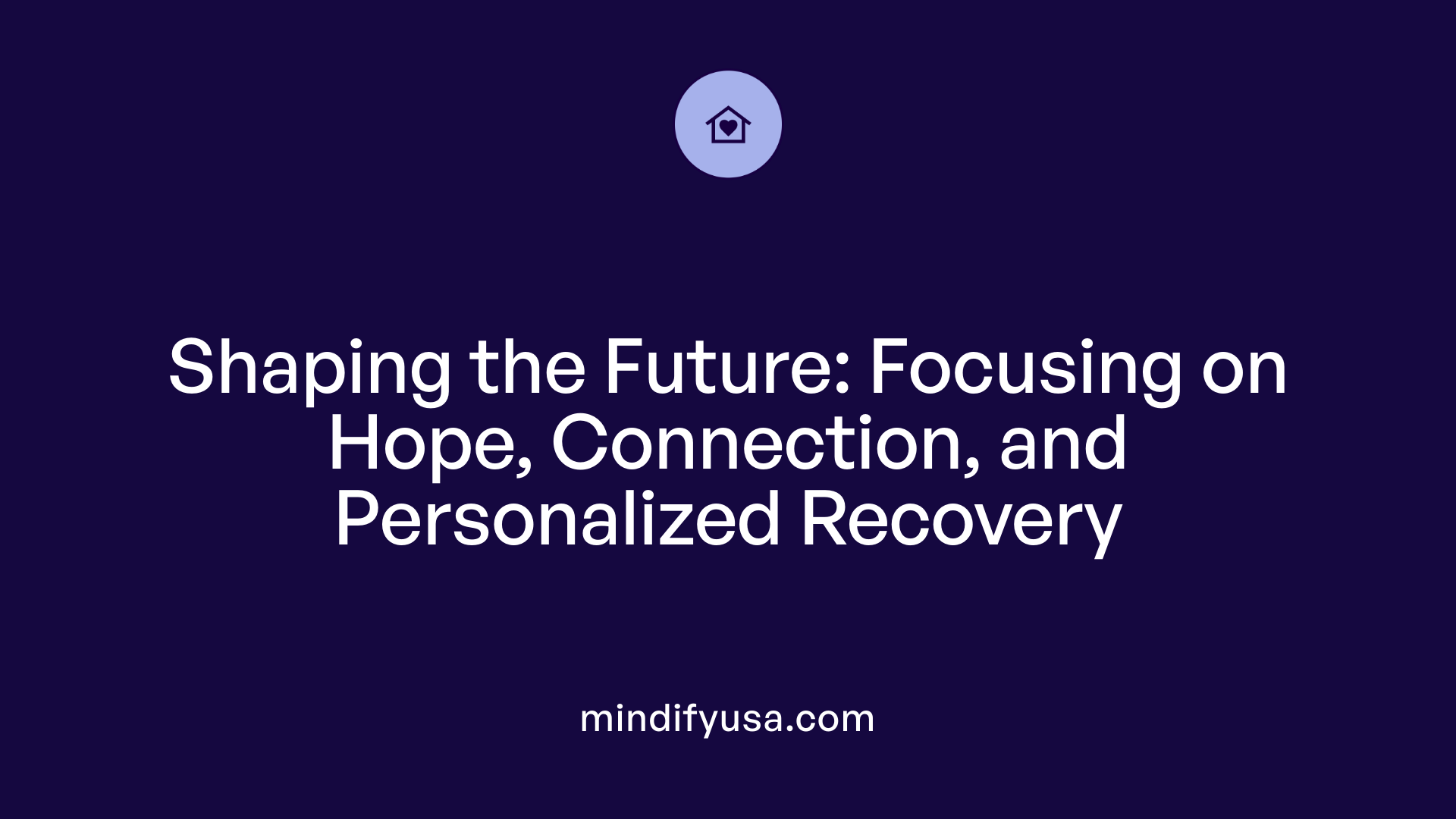
Importance of personal recovery outcomes
Recovery coaching programs for adults with depression are increasingly recognizing the need to focus on personal recovery outcomes that truly matter to clients. These outcomes go beyond symptom reduction and involve fostering a sense of hope, meaning, identity, and empowerment. This personalized approach acknowledges the complexity of mental health recovery, emphasizing holistic growth rather than just clinical improvement.
Emphasis on connectedness, hope, and empowerment
Core elements such as connectedness, hope and optimism, and empowerment have been shown to significantly impact recovery journeys. Studies involving psychosocial recovery coaching highlight that clients feel more valued and respected, experience stronger social support networks, and build confidence and coping skills that help them face trauma and ongoing mental health challenges. These factors collectively enhance treatment engagement and reduce dropout rates among individuals with depression.
Recommendations for mental health services development
Looking ahead, mental health services—including those under systems like the NDIS—should prioritize recovery frameworks aligned with client-valued outcomes such as connectedness, hope, identity, meaning, and empowerment. Customized coaching strategies that address barriers like financial difficulties and system complexities can further improve the effectiveness of treatment. Additionally, understanding that patients with more severe depression may stay in treatment longer offers opportunities for targeted interventions, ensuring sustained engagement and better long-term results.
These future-focused approaches promise to refine and expand the role of recovery coaching, enabling adults with depression to experience more meaningful and enduring recovery.]
Sustaining Recovery Through Coaching: A Path Forward
Recovery coaching represents a vital advancement in comprehensive mental health services, particularly for adults managing depression. The evidence underscores the ability of peer and psychosocial recovery coaches to improve treatment engagement, reduce acute care utilization, and foster key recovery domains such as connectedness and empowerment. Addressing implementation challenges and tailoring services to individual recovery goals will be critical to expanding access and maximizing outcomes. As mental health services evolve, integrating recovery coaching offers a promising pathway to support sustained recovery and enrich the quality of life for those affected by depression.
References
- Recovery Coach Program Implementation Across an ...
- How Peer Coaching Boosts Outcomes in Underserved Areas
- Outcomes and their Alignment with the CHIME-D Recovery ...
- Association between depression severity, mental health ...
- Comprehensive Mental Health Care: Treating Your “Whole ...
- Comprehensive mental health: Significance and symbolism
- Mental health
- Anxiety Disorders: Causes, Symptoms, Treatment & Types
- Treatment
- Anxiety and Depression: Optimizing Treatments - PMC





































































































